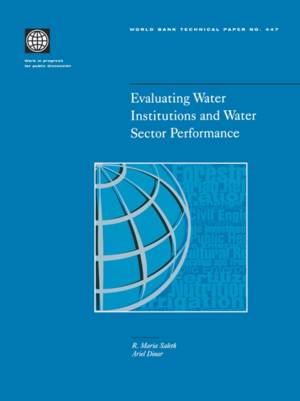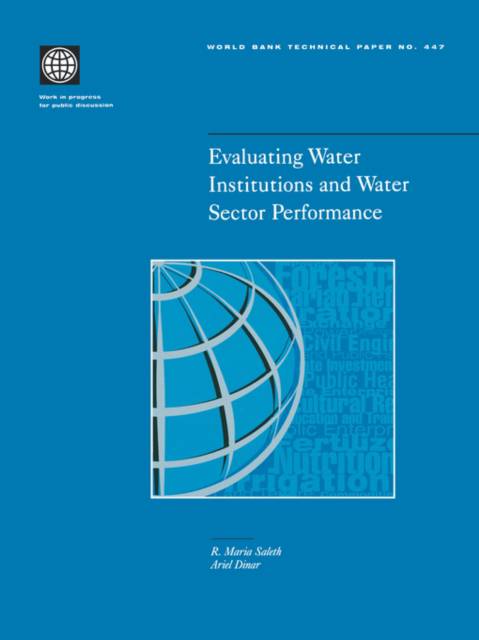
- Afhalen na 1 uur in een winkel met voorraad
- Gratis thuislevering in België vanaf € 30
- Ruim aanbod met 7 miljoen producten
- Afhalen na 1 uur in een winkel met voorraad
- Gratis thuislevering in België vanaf € 30
- Ruim aanbod met 7 miljoen producten
Zoeken
Omschrijving
World Bank Technical Paper no. 447. "Physical limits to fresh water expansion-an emerging reality in many parts of the world-make absolute water scarcity inevitable. The inability of the already developed water supply to meet an ever-growing demand for fresh water also makes the emergence of relative water scarcity unavoidable. Water scarcity-both in its absolute and relative forms-gets accentuated further by an increasing premium attached to water quality and ecological sustainability." The water sector has undergone remarkable changes in recent years. While past achievements were associated mainly with investment in new physical structures, recent developments in the water sector are associated to a greater extent with improved management and institutional changes. Although both the nature and direction of these institutional changes vary by country-specific economic, political, cultural and resource realities, there are clearly identifiable trends and patterns. This report suggests a new methodology to shed light on the process of institution-performance interaction. It demonstrates the use of the methodology by applying it to an extensive cross-country data set, and by deriving policy guidance based on the results. The authors aim to stimulate thought and debate about methodologies and strategies to be used in order to evaluate institutional change and institution-performance interactions in the water sector.
Specificaties
Betrokkenen
- Auteur(s):
- Uitgeverij:
Inhoud
- Aantal bladzijden:
- 108
- Taal:
- Engels
- Reeks:
- Reeksnummer:
- nr. 447
Eigenschappen
- Productcode (EAN):
- 9780821345610
- Verschijningsdatum:
- 1/08/1999
- Uitvoering:
- Paperback
- Formaat:
- Trade paperback (VS)
- Afmetingen:
- 210 mm x 279 mm
- Gewicht:
- 263 g

Alleen bij Standaard Boekhandel
+ 66 punten op je klantenkaart van Standaard Boekhandel
Beoordelingen
We publiceren alleen reviews die voldoen aan de voorwaarden voor reviews. Bekijk onze voorwaarden voor reviews.











